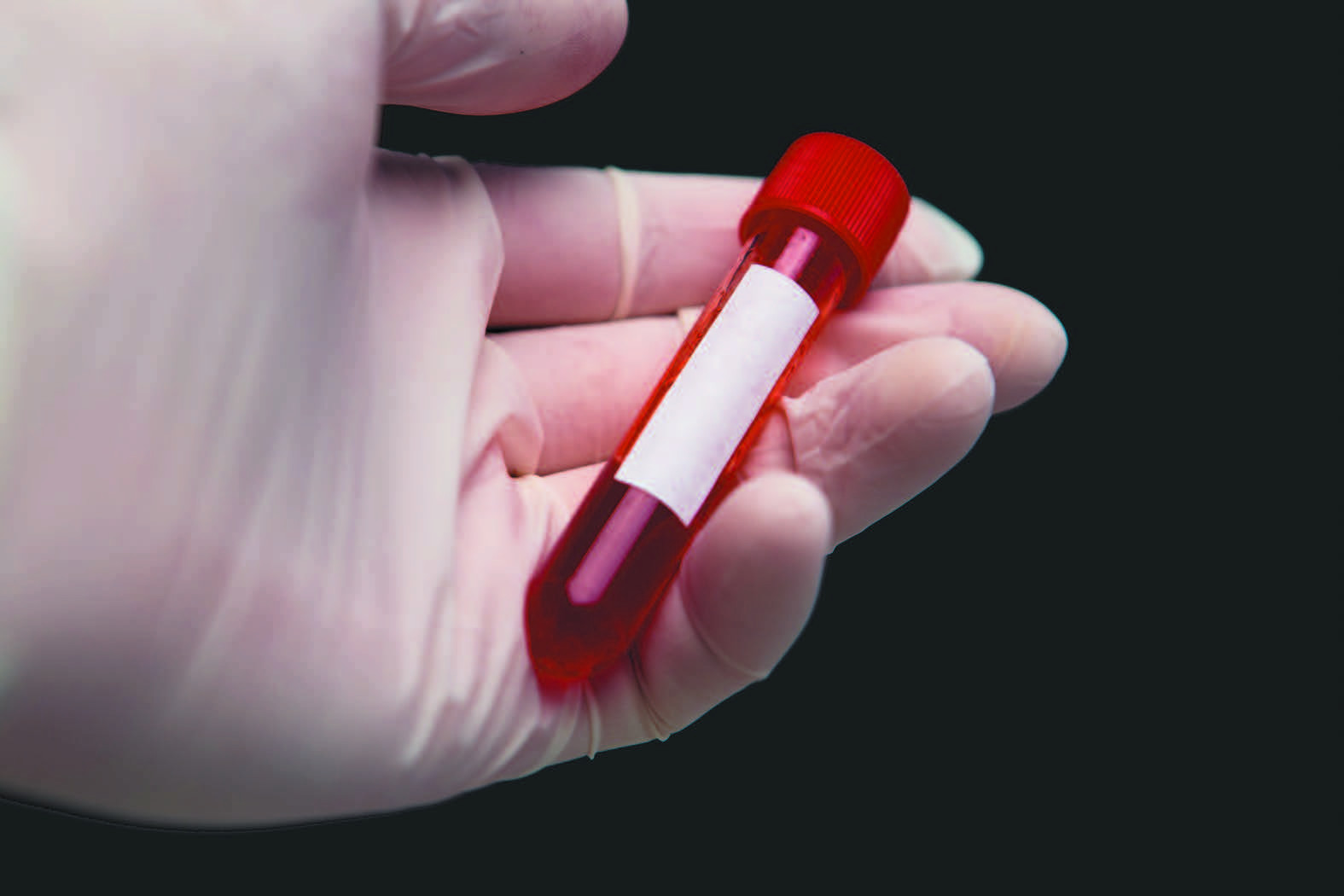
5 timeless habits for better health

What are the symptoms of prostate cancer?

Is your breakfast cereal healthy?

When pain signals an emergency: Symptoms you should never ignore

Does exercise give you energy?

Acupuncture for pain relief: How it works and what to expect

How to avoid jet lag: Tips for staying alert when you travel

Biofeedback therapy: How it works and how it can help relieve pain

Best vitamins and minerals for energy

Should you take probiotics with antibiotics?
Diseases & Conditions Archive
Articles
Can you avoid macular degeneration?
You have the power to reduce certain risk factors for the disease.
We've come a long way in our understanding and treatment of age-related macular degeneration (AMD), the leading cause of vision loss for people ages 50 or older in the United States. We've learned that certain genes and lifestyle factors increase the risk for developing AMD, and discovered treatments that often slow the disease's progression.
Yet for all our advances, we still don't have a guaranteed way to prevent AMD. You are at greater risk if one of your parents had the condition. "One needs to be concerned, but it doesn't mean you're destined to get it. It's a complex disease, and it takes a combination of factors for it to develop," says Dr. Joan W. Miller, chief of ophthalmology at Harvard-affiliated Massachusetts Eye and Ear and ophthalmology chair at Harvard Medical School.
COVID-19 vaccines and the LGBTQ+ community
A history of discrimination in multiple settings, including health care, may make some people who identify as LGBTQ+ hesitant to get a COVID-19 vaccine, even though the virus has disproportionately harmed this community. If you're struggling to make a decision, this may help you consider benefits and risks.
Dental appliances for sleep apnea: Do they work?
Obstructive sleep apnea leaves people tired, but also puts them at risk for other health problems. Not everyone with sleep apnea can use an airway pressure machine, and some may simply prefer not to. There are oral appliances available, but are they effective?
Moving away from knee osteoarthritis
Men may avoid activity because of their knee pain, but movement is exactly what they need.
It is perhaps the ultimate exercise catch-22: it's hard to move with knee osteoarthritis, but moving helps relieve osteoarthritis knee pain.
More than 30 million Americans have osteoarthritis, the most common kind of arthritis. While osteoarthritis can affect the hips, lower back, neck, and fingers, it occurs most often in the knees. In fact, an estimated 10% of men ages 60 and older have symptoms of knee osteoarthritis.
What could cause my breasts to become larger?
On call
Q. My breasts have begun to feel swollen and seem larger. What could cause this, and should I be worried about any potential health issues?
A. Swollen breasts in men are almost always caused by either one or both of two conditions: excess fat deposition in the breasts, or growth of actual glandular breast tissue (gynecomastia). Fatty deposition occurs in overweight men and is always present in both breasts. With gynecomastia, the breasts have a firm or rubbery consistency. While it usually affects both breasts, it can affect one breast much more than the other.
Is stress making your allergy symptoms worse?
Try stress reduction to improve your quality of life and potentially relieve allergy symptoms.
Spring allergies are a stressful business. Coping with watery eyes, a runny nose, sneezing, coughing, or a sore throat affects how you get through each day. "The primary consequence is a reduced quality of life. This naturally can lead to stress on patients and their families," says Dr. Ahmad Sedaghat, an ear, nose, and throat specialist at Harvard-affiliated Massachusetts Eye and Ear Infirmary.
The influence goes both ways: not only can allergies cause stress, but stress can make allergies worse.
Common summer skin rashes
What to do about prickly heat, poison ivy, and other uncomfortable skin reactions.
Image: © LCOSMO/Getty Images
Sunburn is a big risk in the summer. You know the rules: seek the shade, wear protective clothing, and use a broad-spectrum sunscreen (with an SPF of at least 30). But sunburn isn't the only summer skin problem.
Plant-related rashes
Many people are allergic to urushiol, an oil found in poison ivy and poison oak. Exposure occurs when you touch the plant directly, maybe while gardening, or indirectly, by touching an object that's picked up the oil (like a shoe). You can spread the oil wherever you touch your body until the oil is washed off. Two to 10 days later, the affected skin develops a red, itchy, blistering, oozing rash. It's not contagious, though you may feel like it's spreading. "The allergic reaction continues to unfold even after you've washed off the oil," says Dr. Jason Frangos, a dermatologist at Harvard-affiliated Brigham and Women's Hospital.
Moving away from knee osteoarthritis
Men may avoid activity because of their knee pain, but movement is exactly what they need.
It is perhaps the ultimate exercise catch-22: it's hard to move with knee osteoarthritis, but moving helps relieve osteoarthritis knee pain.
More than 30 million Americans have osteoarthritis, the most common kind of arthritis. While osteoarthritis can affect the hips, lower back, neck, and fingers, it occurs most often in the knees. In fact, an estimated 10% of men ages 60 and older have symptoms of knee osteoarthritis.
Playing with the fire of inflammation
Inflammation plays a central role in healing, but left to run wild, this process can lead to arthritis, heart disease, and Alzheimer's.
Image: Ingram Publishing/Thinkstock
Inflammation is like a fire in your body you cannot see or feel. "It's a smoldering process that injures your tissues, joints, and blood vessels, and you often do not notice it until significant damage is done," says Dr. Andrew Luster, of the Center for Immunology and Inflammatory Diseases at Harvard-affiliated Massachusetts General Hospital. The damage might show up as arthritis, heart disease, stroke, and even Alzheimer's disease.
However, inflammation is not evil per se. It has an important role in how your immune system keeps your body safe and healthy. "The goal is to keep inflammation in check and not let the fire run wild," says Dr. Luster.
What is inflammation?
Think of inflammation as the body's natural response to protect itself against harm. There are two types: acute and chronic. You're probably more familiar with the acute type, which occurs when you bang your knee or cut your finger. Your immune system dispatches an army of white blood cells to surround and protect the area, creating visible redness and swelling. The process works similarly if you have an infection like the flu or pneumonia. So in these settings, inflammation is essential—without it, injuries could fester and simple infections could be deadly.
Chronic inflammation
But chronic inflammation can also occur in response to other unwanted substances in the body, such as toxins from cigarette smoke or an excess of fat cells (especially fat in the belly area). Inside arteries, inflammation helps kick off atherosclerosis—the buildup of fatty, cholesterol-rich plaque. Your body perceives this plaque as abnormal and foreign, so it attempts to wall off the plaque from the flowing blood. But if that wall breaks down, the plaque may rupture. The contents then mingle with blood, forming a clot that blocks blood flow. These clots are responsible for the majority of heart attacks and most strokes.

5 timeless habits for better health

What are the symptoms of prostate cancer?

Is your breakfast cereal healthy?

When pain signals an emergency: Symptoms you should never ignore

Does exercise give you energy?

Acupuncture for pain relief: How it works and what to expect

How to avoid jet lag: Tips for staying alert when you travel

Biofeedback therapy: How it works and how it can help relieve pain

Best vitamins and minerals for energy

Should you take probiotics with antibiotics?
Free Healthbeat Signup
Get the latest in health news delivered to your inbox!
Sign Up











